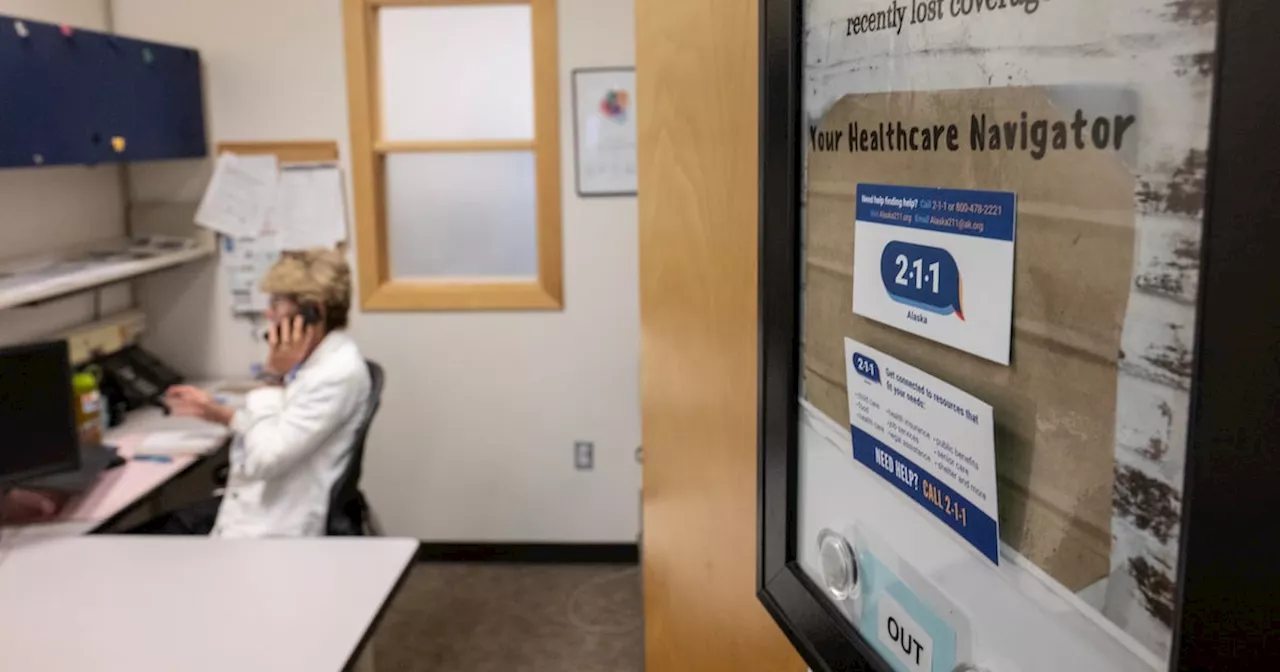Health
Alaska Small Businesses Face Crisis as Health Care Costs Surge

The expiration of health care subsidies at the end of the year could result in some Alaskans facing insurance premiums that triple in cost. This situation has left many small-business owners in Alaska grappling with the potential financial fallout. According to the United Way health care navigator, Kelly Fehrman, thousands of residents who buy insurance through the Affordable Care Act (ACA) marketplace will see their monthly premiums skyrocket, threatening the stability of their businesses.
The enhanced premium tax credits, initially enacted in 2022, are set to expire soon. Many small-business owners warn that without an extension, they could experience dramatic increases in their health care costs, which may severely impact their ability to operate. Brie Loidolt, an owner of a bookkeeping business in Anchorage, stated, “We’re working tooth and nail every day to make our way so we don’t have to rely on any help and assistance.” She anticipates an increase of hundreds of dollars each month in her premiums, prompting her to consider closing her business.
Congress has until the end of the year to act on extending the tax credits. Although the recent government shutdown ended without a deal to maintain the subsidies, Alaska’s U.S. Senators Lisa Murkowski and Dan Sullivan have expressed support for their extension. In contrast, U.S. Representative Nick Begich has not commented on the matter, raising concerns among constituents about their representation.
As small-business owners make decisions about their 2026 health coverage, the urgency for congressional action grows. Mark Robokoff, owner of a pet supply shop, faces a staggering 300% increase in his insurance costs, which could rise from $924 in 2025 to $2,886 monthly. He expressed frustration, saying, “This will pull the rug out from under me. I thought I was doing the things that a society wants its members to do — create new businesses, create new jobs.”
The impact of the subsidy expiration is particularly acute for Alaskans nearing retirement who earn 401% of the poverty line or higher. Approximately 25,000 residents enrolled in ACA marketplace plans are at risk of facing steep premium increases. Robokoff highlighted that without insurance, he would face thousands of dollars in medication costs each month, making coverage essential despite the financial strain.
Loidolt, who provides accounting services to around 40 small businesses, is slated to see her premiums rise by about $500 monthly. She already pays $1,347 per month, and without the subsidies, her insurance costs would exceed her mortgage payments. “Who can afford to live when 30% of everything you bring in just pays for insurance and deductible?” she lamented.
The situation is compounded by the limited options available for small businesses in Alaska. Many insurance companies do not offer plans to businesses with fewer than five employees, leaving owners like Loidolt feeling trapped. She has considered closing her business, which would not only impact her livelihood but also her clients who depend on her services.
Human resources consultant Nan Schleusner and her husband, both sole proprietors, have benefited from the enhanced premium tax credits. However, they now face an annual premium payment of $37,000 with a $15,000 deductible for their family of three. She remarked on the unreasonable nature of the costs, stating, “There’s the affordability part, but there’s the ‘what on Earth is going on that this is costing $50,000 a year?’”
With anxiety palpable among small-business owners, many are hoping for timely intervention from Congress. The current climate leaves them feeling uncertain about their future and the sustainability of their businesses. Robokoff summarized the sentiment, saying, “It’s an entirely new calculus. Everything is going to have to be looked at.”
As Alaskans await a decision from their congressional representatives, the stakes remain high. The looming expiration of health care subsidies poses a significant threat not only to individual business owners but also to the broader economy in Alaska, where small businesses play a crucial role.
-

 Science4 weeks ago
Science4 weeks agoInterstellar Object 3I/ATLAS Emits Unique Metal Alloy, Says Scientist
-

 Science1 month ago
Science1 month agoResearchers Achieve Fastest Genome Sequencing in Under Four Hours
-

 Politics1 month ago
Politics1 month agoAfghan Refugee Detained by ICE After Asylum Hearing in New York
-

 Business1 month ago
Business1 month agoIconic Sand Dollar Social Club Listed for $3 Million in Folly Beach
-

 Health1 month ago
Health1 month agoPeptilogics Secures $78 Million to Combat Prosthetic Joint Infections
-

 Business1 month ago
Business1 month agoMcEwen Inc. Secures Tartan Lake Gold Mine Through Acquisition
-

 Lifestyle1 month ago
Lifestyle1 month agoJump for Good: San Clemente Pier Fundraiser Allows Legal Leaps
-

 Science1 month ago
Science1 month agoMars Observed: Detailed Imaging Reveals Dust Avalanche Dynamics
-

 Health1 month ago
Health1 month agoResearcher Uncovers Zika Virus Pathway to Placenta Using Nanotubes
-

 World1 month ago
World1 month agoUS Passport Ranks Drop Out of Top 10 for First Time Ever
-

 Entertainment1 month ago
Entertainment1 month agoJennifer Lopez Addresses A-Rod Split in Candid Interview
-

 Business1 month ago
Business1 month agoSan Jose High-Rise Faces Foreclosure Over $182.5 Million Loan








